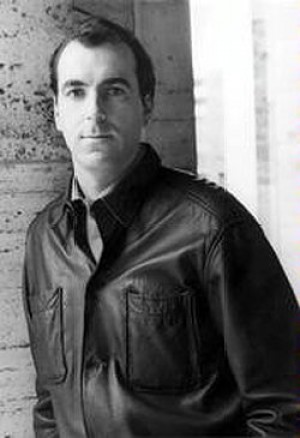Alex Kershaw is the New York Times best-selling author of several popular WW11 titles. He is a British born journalist. Please visit alexkershaw.com for his full bio and some great web-sites devoted to his books. He would be happy to answer any questions and sign books and help in any other way....
show more
Alex Kershaw is the New York Times best-selling author of several popular WW11 titles. He is a British born journalist. Please visit alexkershaw.com for his full bio and some great web-sites devoted to his books. He would be happy to answer any questions and sign books and help in any other way. You can also catch up with him and his work at his facebook page - alex kershaw, author's page. He blogs at www.alexkershawauthor.com and provides video/images/posts on facebook. THE LIBERATOR Q&AWhat inspired you to write the book?I was researching a story about men who liberated the camps in WW11. I came across an extraordinary photograph which showed a young American officer, Felix Sparks, firing his pistol into the air on 29 April 1945. He is in a coal-yard at Dachau, which he has just liberated, and some of his men have opened fire on SS soldiers. He is firing his pistol and shouting to make them stop. The image captures an amazing moment of incredible humanity when one considers that Sparks had by then spent over 500 days in brutalizing combat, losing an entire company at Anzio and a battalion to the SS, since landing on the first day of the invasion of Europe. Most people would not have stopped the killing of such evil men, just minutes after discovering the full horrors of Hitler's first concentration camp. I had to meet this man and in 2007 I interviewed him, literally on his death-bed. No other American fought for longer or suffered more to free more people from the greatest evil of modern times. - What surprised you the most during the writing process?I was often astonished by the sheer violence and trauma endured by the so-called Greatest Generation. Over 150,000 mostly working-class Americans died to liberate Europe. Hundreds of thousands came home and never talked about it. Why would you want to recount what felt like being in a terrible car crash each day? I interviewed many men who served with and under Sparks and because they opened up to me I was struck over and over by how great their suffering had been. None came home unbroken. They all paid a huge price if they were in combat. - What would you be doing if you weren't a writer?I'd be a retired banker, sipping cocktails in St. Lucia, lazily scanning the Wall Street Journal to see how my investments, taxed at almost nothing, are doing. Sadly, l decided to try to do something a little more interesting.... - What else are you reading right now?I am utterly absorbed in the Civil War and Revolutionary War America - my son is studying these periods at middle school. It's hugely colorful history. Even as an expat "limey" who has lived here for twenty years I'm astonished by how radical the idea was that all men should be equal before the law, not subjects of a king. As concerns the Civil War, Michael Shara's The Killer Angels is amazing. The Civil War has not ended of course - just look at the red and blue states.
show less

